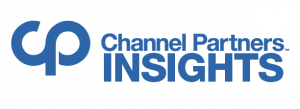Microsoft for Nonprofits Helps Partners Meet CSR Goals While Empowering Clients
Microsoft for Nonprofits can be a game-changer for small charities with limited budgets.
December 14, 2018


Scott Paul
By Scott Paul, Senior Director – Microsoft Alliance for AppRiver
 Doing the right thing is in line with solid business practices; it’s a proverbial win-win for all involved. Microsoft has a rich philanthropic history, and its Microsoft for Nonprofits program is a perfect example of how corporate giving can make a real difference for those in need while also benefiting resellers who participate.
Doing the right thing is in line with solid business practices; it’s a proverbial win-win for all involved. Microsoft has a rich philanthropic history, and its Microsoft for Nonprofits program is a perfect example of how corporate giving can make a real difference for those in need while also benefiting resellers who participate.
For years, Microsoft — directly and through resellers — has committed to donating millions of dollars in software, licensing and expertise to nonprofit organizations. While Microsoft’s productivity tools are appropriately priced for commercial businesses, the same price points are often too high for budget-conscious nonprofits.
Because of these budget constraints, nonprofit staff members are often working without the necessary productivity tools to perform tasks and accomplish goals in a timely fashion. Or if they purchased a Microsoft solution at one point in time, the resources may not be available to update original operating systems, putting the organization at a significant disadvantage and introducing unnecessary network security risks via unpatched vulnerabilities. Without question, the nonprofit program has given Microsoft and its resellers the opportunity to empower organizations that are diligently trying to make the world a better place.
A Much-Needed Transformation
Microsoft’s traditional model of selling heavily discounted boxed-software was disrupted, primarily, by its own innovation — the 2011 introduction of the cloud-based Office 365. Microsoft intended to help nonprofits migrate to this new platform, but it took some time to develop new licensing models for nonprofits.
In early 2016, the company made a commitment to donate $1 billion in cloud-computing resources over a three-year period with a goal to help 70,000 nonprofit organizations “digitally scale their impact and serve the public good.”
In September 2017, Microsoft had met its goal and announced a decision to accelerate efforts — reorganizing its structure and moving licensing for charities and nonprofits out of the commercial services organization and realigning it into Microsoft’s Technology for Social Impact (TSI) group, which is part of Microsoft Philanthropies. This was a landmark decision for Microsoft, one which helped better focus the initiative and unlock its potential.
Microsoft Philanthropies understands that the demands on nonprofits are perhaps greater today than ever. In its announcement for the Technology for Social Impact group, Microsoft noted:
“As an industry, we can help nonprofits digitally transform to raise funds, improve productivity, accelerate innovation and ultimately have a greater impact on the world’s most pressing issues. That’s why we’re announcing the formation of Microsoft’s Technology for Social Impact group, dedicated to serving the world’s nonprofit organizations. This new team will build the kind of robust ecosystem that today works so well for businesses, to help nonprofits move to the cloud and provide the support they need. We will continue to donate and discount cloud services for nonprofits.”
Microsoft initially debuted two offers for the nonprofit community and the partners that support them, as follows:
Microsoft 365 for Nonprofits: A complete solution that encompasses Office 365, Windows 10, and Enterprise Mobility + Security.
Surface Books and Surface Pros: Discounted devices to help nonprofits more easily access and utilize Office 365 and Windows 10, from inking to biometrics to 3-D experiences, and help improve and affect the lives of others.
This was only the beginning of a robust program to help nonprofits and create new opportunities for managed service providers (MSPs), consultants and resellers. Microsoft further stated its commitment to the program by …
… announcing:
“We will help build the kind of ecosystem that today works well for businesses — a community of providers that will distribute cloud services and deliver support and migration services for nonprofits.”
Today, more than 50 offerings are available for nonprofits, as the program works to make business technology readily available and to enable these organizations to operate at the same level of productivity, efficiency and innovation as well-funded for-profit organizations.
Opportunities for Resellers
For many resellers, being a part of this program not only fits into corporate responsibility commitments, but it can also yield wider business opportunities and a broader market for (MSPs), consultants and resellers to serve a wider base of clients for all their needs, from products to ongoing service contracts.
More than 100,000 small nonprofits operate today in North America, and many haven’t been able to afford the most current enterprise tools. The Microsoft Nonprofit program helps resellers address these organizations with affordable options.
Resellers are critical to the success of the program. While Microsoft always has handled large enterprise sales in-house, it understands that smaller enterprises — and particularly small nonprofits — are best served by partners that can provide local, high-touch service. Microsoft already had the largest partner program in the technology industry, and the nonprofit program expands it even further for the benefit of its trusted indirect providers and resellers.
Many business opportunities arise when helping to build up a nonprofit practice. Although the average per-user revenue is lower, based on the deeply discounted license fees, resellers often benefit from similar margins selling to nonprofits as they do with commercial customers. Beyond the licensing fees, resellers can potentially gain recurring revenue agreements with nonprofits to provide a variety of services, such as security monitoring and ongoing managed services.
For nonprofit organizations, Microsoft for Nonprofits is game-changing, allowing these organizations access to a large and continually expanding catalog of products at significant discounts. For resellers, it represents an opportunity to meet philanthropic and business goals. As mentioned earlier: win-win.
Scott Paul is the senior director of AppRiver‘s Microsoft Alliance. AppRiver was one of the Microsoft’s original go-to-market partners for Office 365 and now has one of the most experienced Office 365 support teams in the business. The company also provides free Microsoft 365 training courses for channel partners. Follow Paul on LinkedIn or @AppRiver on Twitter.
Read more about:
AgentsYou May Also Like
